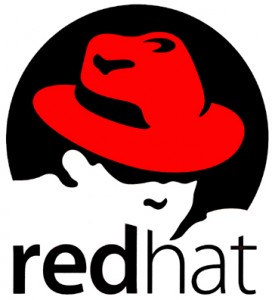 The Open Source solutions provider announced the availability of Red Hat Storage Server 2.0, an open source storage scalable solution designed to manage unstructured data.
The Open Source solutions provider announced the availability of Red Hat Storage Server 2.0, an open source storage scalable solution designed to manage unstructured data.
Red Hat Storage Server 2.0 is the first system to combine the innovations of the open source community and the benefits of capacity and cost effectiveness of standard x86 servers built on-premises hybrid cloud environments.
It helps to store larger data volumes within a single pool. This unified storage of files and objects simplifies the management of disparate data and gives users all the performance and scalability to cope with the explosive growth of unstructured data in an economical manner, with the assurance of centralized access to information.
Based on the operating system Red Hat Enterprise Linux, Red Hat Storage is a scalable and high availability storage solution, with an extensive array of more than 50 dual-socket compatible x86 servers, open standards, with the support of Common Internet File System (CIFS), Network File System (NFS), HTTP and OpenStack Swift protocols.
“Red Hat Storage Server 2.0 is so far the only solution to file storage industry to seamlessly integrate object storage,” says Ranga Rangachari, vice president and general manager, Storage, Red Hat. “It allows storing larger data volumes within a single pool. This unified storage of files and objects simplifies the management of disparate data and gives users all the performance and scalability to cope with the explosive growth of unstructured data in an economical manner, with the assurance of a centralized access to information.”
Red Hat Storage Server is deployed on-premise cloud environment in private, public or hybrid, and lends itself to enterprise applications in the most demanding storage capacity, including high performance computing solutions for archiving, near- line media clouds.
Available only in draft, Red Hat Storage Server 2.0 is also compatible with Apache Hadoop infrastructure management of large volumes of data, offering users a new Hadoop alternative for storing their data.
“In the coming years, open source storage solutions and volume x86 servers are expected to transform the storage market in the same way that Linux and volume x86 servers transformed the server market, and with Red Hat Storage we’re positioning ourselves to be at the very forefront of this industry transformation,” said Rangachari.
The company also extends data center offerings by supporting Google’s Open Compute project, OpenvSwitch and OpenFlow networking software products and advancements in the operating system, virtualization, storage and networking.
In addition, Red Hat announced several new set of solutions that it plans to roll out in coming months based on the OpenShift Enterprise PaaS offering to manage and build open hybrid clouds.
With OpenShift, Red Hat offers a PaaS platform built on open source technology that allows you rapidly develop and deploy applications in the cloud. OpenShift incorporates self-scalability, supports a wide variety of languages, frameworks, middleware and clouds, and is available for free.
The company said the OpenShift Enterprise PaaS now includes Red Hat Enterprise Linux, Red Hat Storage, Red Hat Enterprise Virtualization, Red Hat CloudForms, and JBoss Enterprise Middleware.
Red Hat OpenShift launched in May 2011 as an alternative to VMware’s Cloud Foundry. This PaaS can run programs written in Java, PHP, Python, Perl and Ruby, offering a variety of databases and caching.
So far, OpenShift has only been available as a service on Amazon EC2 Compute Cloud. However, the release of source code OpenShift allows developers to run the PaaS locally on their laptops, a server behind their own firewalls or on their own data centers.
Earlier last week, Red Hat launched JBoss Data Grid 6, a NoSQL in-memory database solution for Big Data and JBoss Enterprise Application Platform 6 to run apps in the hybrid cloud or the local environment.